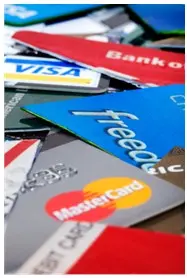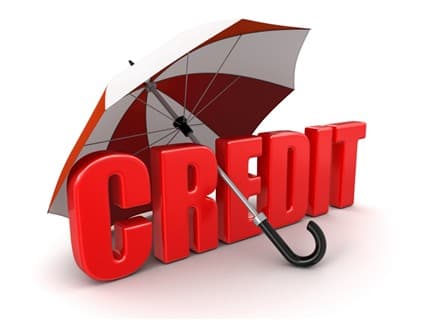- Credit Consolidation is combining different types of debt and/or loans together.
- If you have equity in your house, then you can look for a Home Equity loan to consolidate credit.
- Debt Management and Debt Settlement are two debt relief options, which consolidate credit bills.
- Start your FREE debt assessment
Get the Facts About Credit Consolidation
Do you have too many bills to pay? Do you find it hard to make your monthly payments? Are you getting collection notices? Afraid of losing your house or car?
There is no one size fits all solution. It is important to learn about the various debt resolution options available, including Credit Consolidation.
Being stressed does not help find a solution, but being informed does. Bills.com offers many valuable tools and articles to help you find debt relief options. In order to make a responsible decision about dealing with your debt, this article will give you the basic facts about credit consolidation.
What is Credit Consolidation?
Credit consolidation is combining different debt into one bill. It can be one type of debt, or different types of debt. There are two common types of credit consolidation. The first one is to take a large loan and pay off other smaller debts. The second method is to find a program that will take your money and funnel it to various creditors. Credit consolidation deals with different types of debt and different types of collateral.
Types of Debt
Different types of debt can include:
- Mortgage loan
- Auto Loan
- Credit Cards
- Medical Debt
- Student Loan
- Personal Bank Loan
Types of Security
Your credit consolidation options depend on the type of collateral that you can offer to the lender. Some credit may be secured, such as a mortgage loan or an auto loan, and some may be unsecured, such as a student loan or a credit card.
When you take out a loan the lender will require some type of collateral, security or personal pledge. When your are required to pledge an asset, such as a house, car or monies in a bank account, this is a secured loan. If you do not pay as agreed, the lender can take the asset that secures your loan. Usually, the lender can also sue you if there is a balance left over.
When you are only required to personally sign for your debt or loan, then this is called unsecured debt. The lender has decided to grant you a loan based only on your income, credit score and net worth. If you don’t pay as agreed, the lender cannot come after a specific asset, but can sue you and seek a court judgment which can lead to wage garnishments, bank levies and liens on your personal property.
Quick tip
Contact one of Bills.com's pre-screened debt providers for a free, no-hassle debt relief quote.
Types of Credit Consolidation Programs
Before you decide if credit consolidation, or any debt consolidation program, is a good solution for you, set up a personal budget. Monitor your expenses carefully. Pay attention to the amount of money you are taking home and the amount you are spending, especially on servicing debt. Set up goals to pay off debt and save money.
There are five credit consolidation solutions:
- Home Equity Loan Credit Consolidation
- Student Loan Consolidation
- Credit Counseling (Debt Management Program)
- Debt Settlement
- Unsecured Debt Consolidation
Home Equity Loan
If you have a large asset that can be used as collateral, then you can consider taking out a home equity loan as a form of credit consolidation. This allows you to take out equity you built up in your house and use it to pay off smaller debts. The pitfalls of this solution are that you transfer unsecured debt to secured debt, and you will run up the credit card debt again. If you have the option of doing a home equity loan as a source of credit consolidation, do it with care.

Student Loan Consolidation
There are different programs available for federal student loans and private student loans. Each type must be addressed differently; however, the primary benefit of consolidation is simplified payments. Rather than five, ten, or more payments every month, you will make just one or two payments. In some cases, you will be able to save money by consolidating into a lower interest rate.
Credit Counseling - Debt Management Program
This debt relief option begins with an in-depth analysis of your financial situation. Creating a personal budget, and net worth statement is the beginning step to finding a solution. The next step is setting up a debt management program, whereby you make payments to an escrow account, handled by a debt management company. This company negotiates then negotiates with your creditors reduced interest rates and waiver of fees, and pays off the debts each month. Although this is not strictly a consolidation loan, it does consolidate all of your participating bills into one payment.
Debt Settlement
This debt relief option allows for saving money by negotiating a smaller payment to the creditor than owed. Debt Settlement is also not a loan that consolidates your debt, rather is a program that collects your funds and pays it off to creditors, after negotiating a lower pay-off. Debt settlement is an option for people who cannot afford their monthly payments, and who are not worried if their credit rating will be negatively impacted during the program. You may have already been been subject to collection efforts, and with debt settlement, you may continue to be confronted by aggressive collectors.
Finding a Loan Consolidation Option That’s Right for You
Each debt solution and credit consolidation program has its advantages and disadvantages. Some are for those who have a strong financial position, and some are for those in financial distress. No matter which credit consolidation program you look for, remember to create a personal budget, manage your cash flow and set up your financial goals. Credit consolidation might be the right answer for you.
Free up cash each month with Freedom Debt Relief

Ozzy S., Freedom client
“Right away, I had more money each month because of program costs so much less than what I was paying on my minimums.”
Actual client of Freedom Debt Relief. Client’s endorsement is a paid testimonial. Individual results are not typical and will vary.

